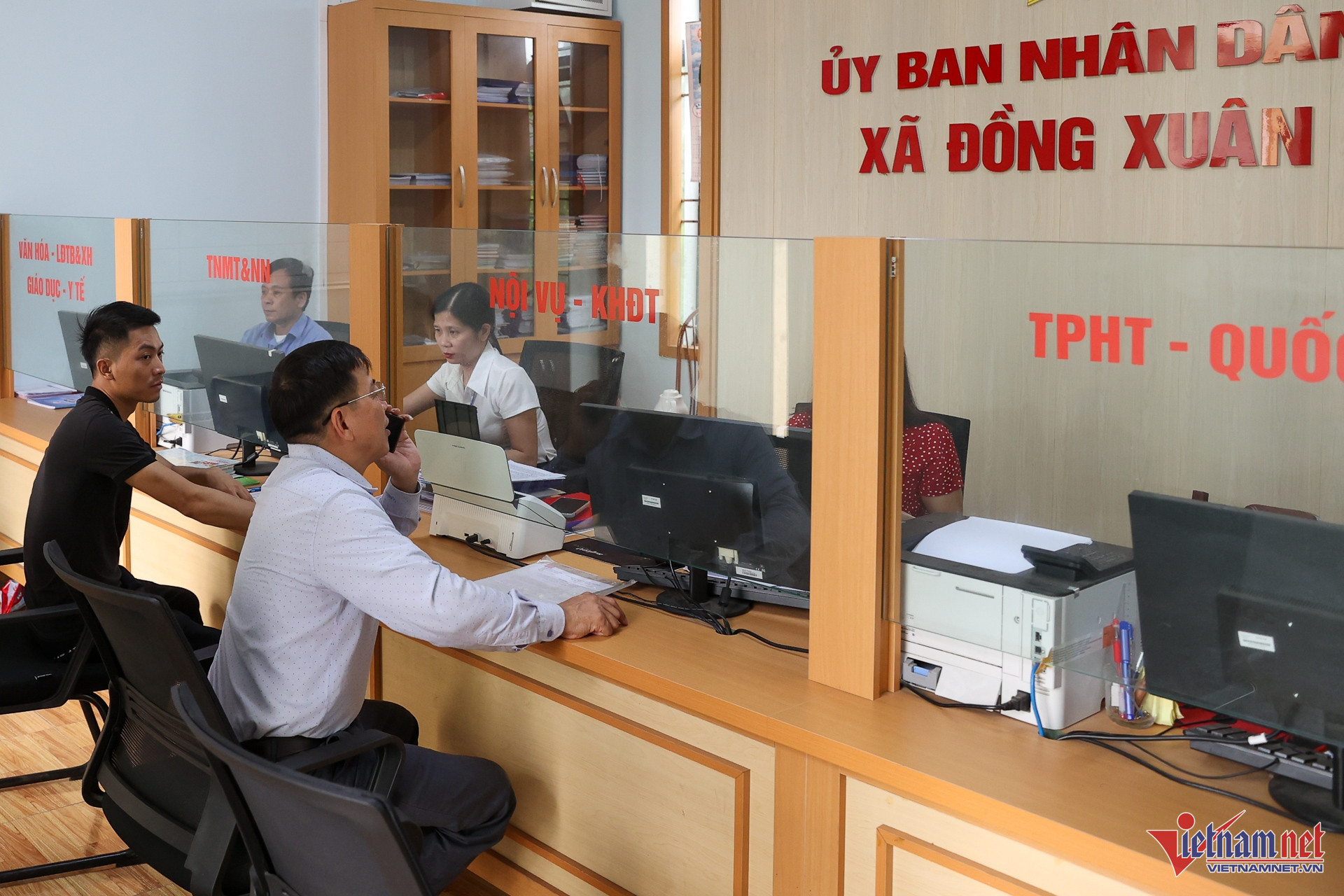
After graduating from university (under an extension program), Le Doan Trinh has worked in Xuan Cao commune in Thuong Xuan district, Thanh Hoa province) for nearly 15 years.
Trinh serves as a civil servant while also handling the tasks at the commune’s one-stop-shop unit. He spends 50/50 time on each duty, though he’s paid for just one.
He said that at university, he could only learn IT in theory, with no practice. In the commune, he was self-taught and gradually picked up skills to meet job needs. Now, he’s among the few officers there confident in IT.
Good performers shine anywhere
In Xuan Cao commune, many civil servants have to undertake extra tasks beyond their assigned roles. "The commune office workload is always overwhelming. It used to have one staff; now it’s up to two," he said.
At work, beyond processing files and assisting locals with administrative procedures, he frequently visits villages to communicate directly with people.
Trinh said he and many commune civil servants support the policy on communal unit restructuring, hoping changes will better serve residents. He views scrapping district levels—so people don’t "go in circles" through layers—as the right move. The challenge is balancing staff across levels.
On debates about preferring commune civil servants with extension versus full-time degrees, or district versus commune staff, he thinks that district officials, long focused on coordination, generally outpace commune peers in skills and IT. Yet, commune staff excel in grassroots experience and closeness to locals. Blending both could yield top results.
"Good performers shine anywhere. But after the commune merger, positions will be arranged according to jobs, each person will do their own job, so there will be people who have difficulty meeting job requirements," Trinh analyzed.
"Not all full-time grads outdo non-full-time peers. Some excel through self-study and a learning mindset," he said. He’s always ready to quit per regulations if he can’t meet job demands.
"Policies for civil servants exiting during this merger are clear and secure officers’ benefits. In my area, some officers have already opted to retire early," he notes.
Correspondence or full-time degrees?
Talking to VietNamNet on whether commune civil servants need correspondence or full-time university degrees, former Deputy Minister of Home Affairs Nguyen Tien Dinh said both of them are recognized by the state, and therefore, have equal validity.
Assessing civil servants’ competence should hinge on real-world results, testing, and screening.
The draft amended Civil Servants Law proposes no distinction between commune, provincial, or central civil servants. Thus, the ex-deputy minister says future screening won’t just target commune staff but also district staff reassigned downward, plus provincial and central levels.
Screening criteria can vary by locality. He cites Quang Ninh province, which uses its own tailored set.
"Based on legally set general standards, localities will refine them to fit their specific conditions and traits," he said
For testing candidates’ capability, he suggests direct interviews or computer-based exams.
On IT skills, those lagging must study to improve. Roles needing foreign languages should demand that too.
"Then there’s communication, negotiation, advocacy, and persuasion—core skills," he adds.
Beyond competence and results, ethics and attitude matter hugely.
"Now it’s a constructive, service-oriented state. Serving people with the right spirit is key. Public satisfaction with civil servants is a critical measure," Dinh said.
As of December 31, 2024, commune civil servants total over 212,600, with 92.4 percent holding university degrees or higher and 7.6 percent with college degrees or below.
Thus, only a small fraction fall short of standards, to be handled per government policies, ensuring fair benefits.
Many grassroots civil servants hope the restructuring will follow the spirit of "streamlining doesn’t mean elimination," prioritizing young, qualified individuals.
The goal isn’t to turn communes into "mini districts" but to build a government tier closer to the people, where resources are managed efficiently, policies roll out fast, and responsibility-shirking ends. This lets localities seize broader development space and craft a long-term vision for sustainable growth.
For civil servants, prioritizing young, well-educated individuals with IT skills and standout university records (like joining the Party as students) is a smart path. For semi-specialized staff, consider degrees, real contributions, age, and growth potential for selection or further training.
Nguyen Thao